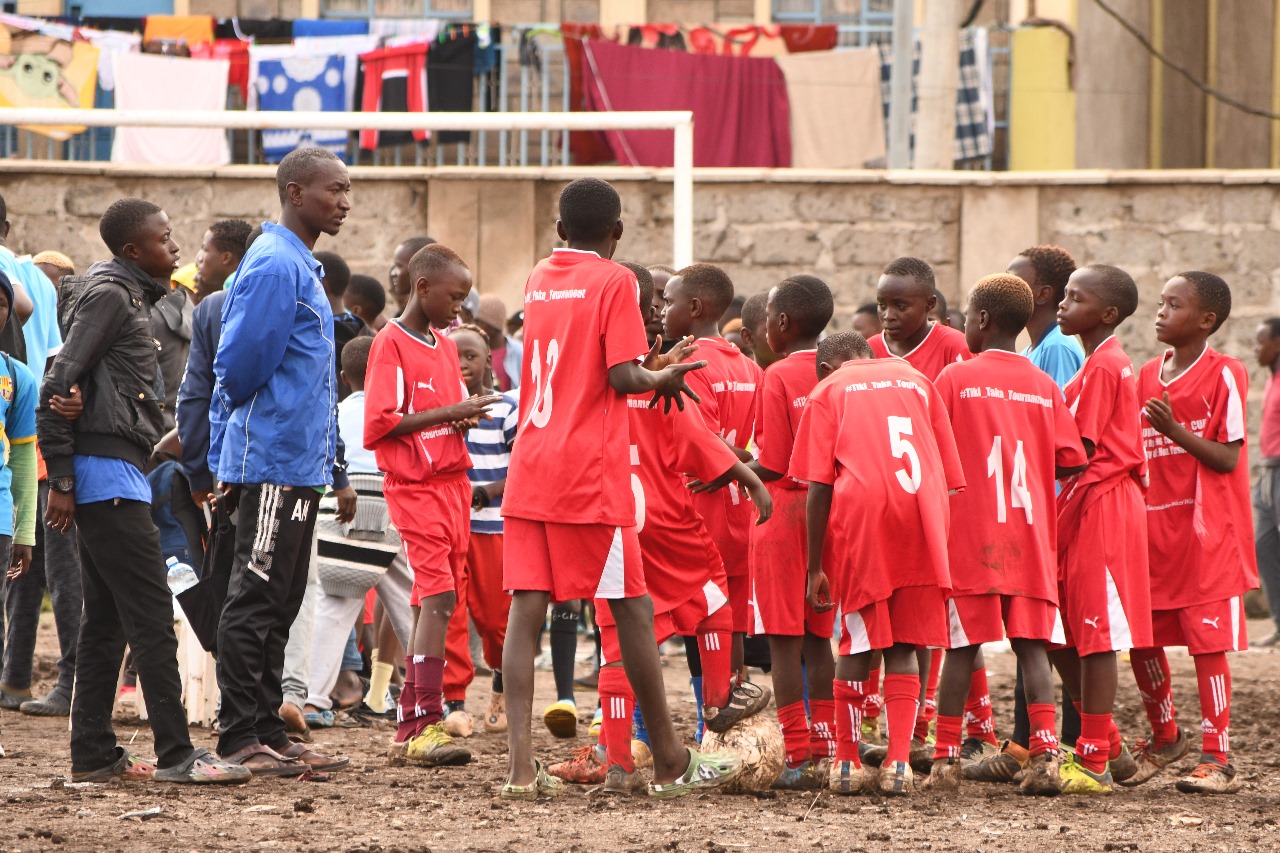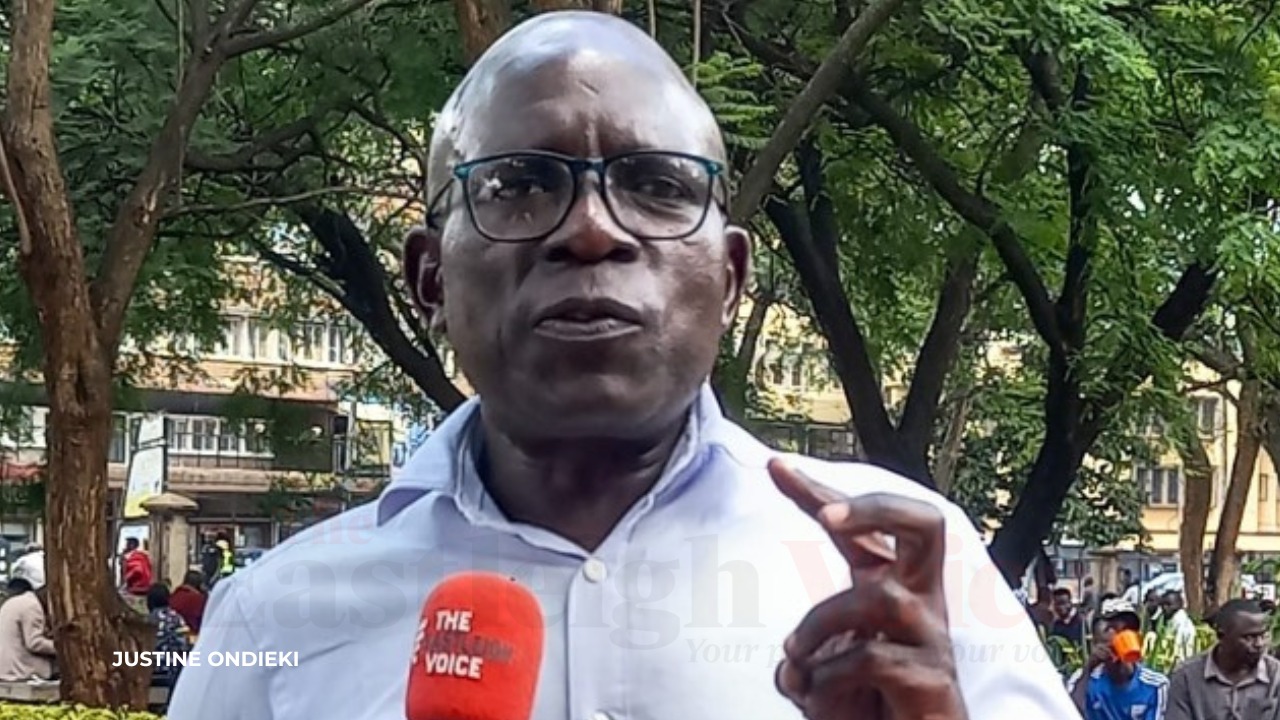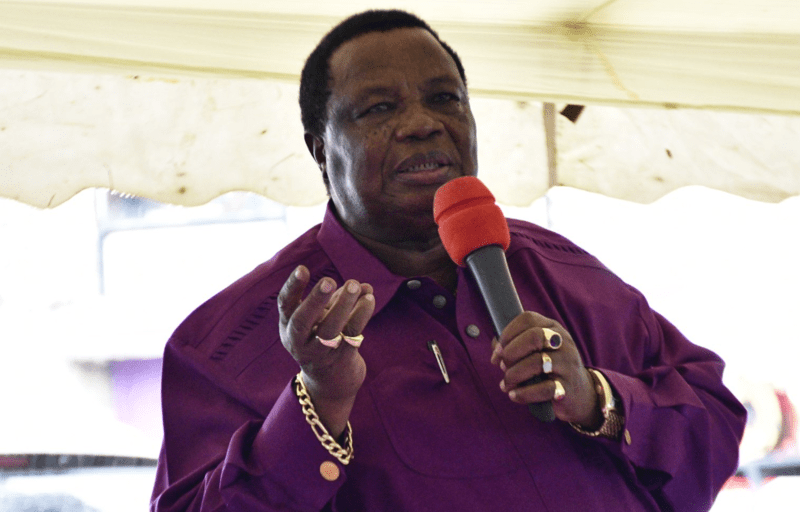How football keeps youth in Kinyago slums off crime and drug abuse

Kinyago United has groomed top football talents including Kariobangi Sharks midfielder Keith Imbali, Mathare United defender Stephen Okola among others
In Kenya, the youth comprise over 51 percent of the total population, presenting unparalleled opportunities to leverage their energy and potential for development objectives, particularly in the developing world.
Football, as the world's most popular sport, serves as a powerful social tool, uniting people of diverse ages, genders, and cultural backgrounds globally. Its unique effectiveness and affordability make it an ideal platform for creating safe spaces where young people can steer clear of social issues that may jeopardize their well-being.
More To Read
Established in 1985, Kinyago Slum hosts a sizable population of children, youth, and elderly residents. However, it grapples with overcrowding and inadequate infrastructure, including deficient sanitation facilities, poor drainage systems, and high levels of illiteracy fueled by poverty. A significant portion of the youth, as young as 12 years old, become ensnared in social vices, such as drug abuse and criminal activities, exacerbating the community's challenges.
Venturing into Kinyago slums, I had the opportunity to engage in a one-on-one conversation with Coach Anthony Maina, a stalwart community football coach of 26 years. Raised by a single mother, Anthony, along with his brother Francis Muiruri and cousins George Karugo and John Nguge, grew up in the heart of Kinyago slums. Inspired by his mother's passion for football, Anthony founded a football team to steer young people away from the pitfalls of crime, drug abuse, and school dropout rates.
"Having witnessed firsthand the struggles of life in Kinyago, I felt compelled to alter the narrative and help the youth realize their full potential," Coach Anthony Maina expressed.
Utilizing football as a catalyst for social and educational development, Anthony's inspiration stemmed from the fervor surrounding the 1998 World Cup in France. Despite lacking coaching experience, he established a junior team initially named Newcastle United, with invaluable support from his mother.
In the absence of proper recreational facilities, the community rallied together to transform a former dumping site into Kinyago United's inaugural football pitch. With subsequent formation of two additional teams, Richmond FC and Pellico FC, weekend matches became a cornerstone of community engagement, with proceeds reinvested into the teams.
"We reminisce about our first jersey purchase, a monumental achievement fueled by consecutive victories against Pellico and Richmond FC," Coach Anthony fondly recalled.
Following consultation with players and officials, the team transitioned to Kinyago United, garnering widespread recognition and attracting aspiring young talents from Kinyago and its environs. Through strategic partnerships, the team received vital support, empowering countless youth within Kinyago Slums.
"Youth engagement in sports fosters values like discipline, respect, teamwork, and inclusivity," noted Coach Anthony Maina.
Undeniably, every community requires a sanctuary where young people can freely play, learn, and exchange experiences without fear or discrimination. The football pitch serves as such a haven, nurturing youth potential and facilitating behavioral transformation.
"Notable achievements include maintaining an 80x40m playing field since 1998 and securing scholarships for 110 needy students since 2009," highlighted Coach Anthony.
Over its 26-year tenure, Kinyago United has groomed top-tier football talents, including Steve Okola, currently at National Super League (NSL) side Mathare United and Kariobangi Sharks midfielder Keith Imbali, who has also represented Kenya at various levels, among others.
"Being a part of the Kinyago United team truly steered me away from crime and drug abuse. Sometimes during our training sessions, they would be interrupted by exchanges of gunfire between the police and criminals. Studying at home was immensely challenging due to lack of electricity, but football has molded me into the person I am today. I am sincerely grateful to my elder brother, 'Franko,' and Coach Anthony, who consistently monitored my progress, offering invaluable advice and guidance." Steve Okalla told Eastleigh Voice.
Coach Anthony Maina also sheds light into how Keith Imbali, perhaps their greatest success story so far, made it through the ranks of Kinyago United.
"Like every other young player who has passed through our programs, Keith Imbali was among the many children whose potential was realized and nurtured through Kinyago United. At the age of 9 years, he was spotted and recruited in the team after they moved to Kinyago village from Majengo village in Pumwani. He was humble and showed so much effort in training as young as he was. He was very disciplined and obedient and always wanted to learn and help other players. He was selfless and was the last player to wear a uniform during matches. He always made sure every other player was ready for the matches,"
"Keith dreamed of becoming a professional football player as young as he was. Keith was certain that with the help of the coach, his parents and the teammates he would achieve his dreams. Keith grew up through the FKF lower-tiers under his tutelage and later moved to Gor Mahia Youth and Coast Stima seasons before joining his current club Kariobangi Sharks. His brother Jahson Wakachala is also walking in his footsteps as he is playing for Kariobangi Sharks youth team." He concluded.
 Keith Imbali in action for Kariobangi Sharks against Tusker. Photo courtesy FKFPL
Keith Imbali in action for Kariobangi Sharks against Tusker. Photo courtesy FKFPL
Despite their relative successes, the club faces challenges, including resource inadequacies. To address this, plans are underway to revive a cyber cafe project and refurbish community washrooms, vital for both team operations and player support, given the majority's vulnerable backgrounds.
Reporting by Charles Sisia
Top Stories Today














































